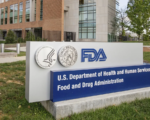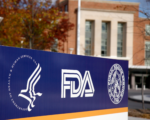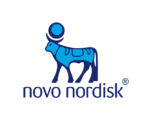The U.S. Food and Drug Administration (FDA) recently approved a generic version of the daily injectable GLP-1 medication liraglutide for the treatment of type 2 diabetes. This approval opens the door for more affordable options, helping to address an ongoing shortage of the drug. Liraglutide, sold under the brand name Victoza, is in the same class as semaglutide, the active ingredient in Ozempic, both of which are marketed by Danish pharmaceutical giant Novo Nordisk.
The generic version of liraglutide will be produced by Hikma Pharmaceuticals USA, which plans to make it available nationwide by the end of the year. While the company did not disclose the exact price, it confirmed that the generic would be priced lower than the branded version, which can range from $500 to $815 per package, depending on dosage.
According to Dr. Harlan Krumholz, a cardiologist at Yale University, the availability of the generic will benefit many patients currently using liraglutide. However, he points out that newer GLP-1 medications, such as Ozempic, Wegovy, Mounjaro, and Zepbound, which are given as weekly injections, have shown stronger benefits, particularly for patients with obesity. These medications, which cost upwards of $1,000 per month without insurance, are not yet available as generics, which may create a two-tier system in which lower-income patients only have access to drugs with less robust evidence of effectiveness.
In addition to this new generic, Teva Pharmaceuticals had introduced an authorized generic version of liraglutide in June 2024, as part of a settlement with Novo Nordisk. The authorized generic is priced about 14% lower than branded Victoza but is identical in formulation, produced by Novo Nordisk and distributed by Teva.
While authorized generics are essentially branded drugs sold without the brand name, true generic drugs like the newly approved liraglutide are manufactured by other companies and are designed to be more affordable alternatives. The FDA has emphasized that generics provide patients with additional, more cost-effective treatment options, especially for drugs in shortage.
Experts, including Dr. Aaron Kesselheim from Harvard Medical School, caution that it often takes multiple generic manufacturers entering the market before prices significantly drop. Typically, prices may decrease by 50-60% when four or more generics are available. However, the approval of the first generic liraglutide marks a positive step toward more competitive pricing in the market.
Liraglutide has been in shortage in the U.S. since July 2023, with the FDA prioritizing the assessment of generic drug applications for drugs in shortage to improve patient access. Dr. Jody Dushay, an endocrinologist at Beth Israel Deaconess Medical Center, expressed hope that the generic version will be significantly cheaper than the brand-name drugs and that it will quickly become available to patients.


















